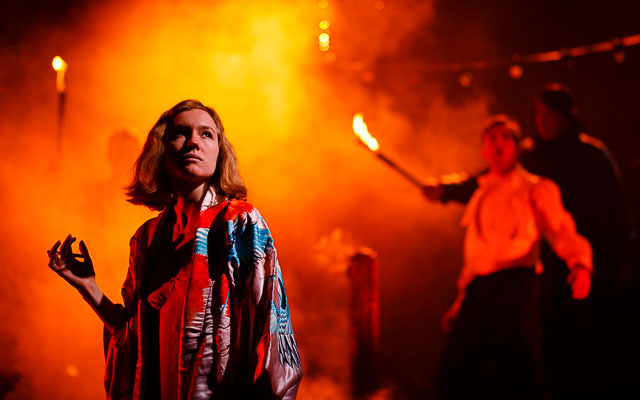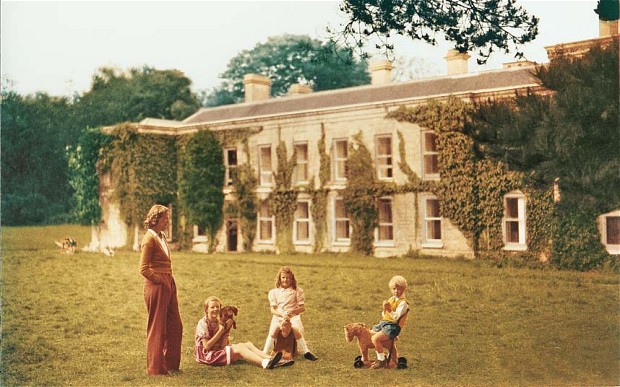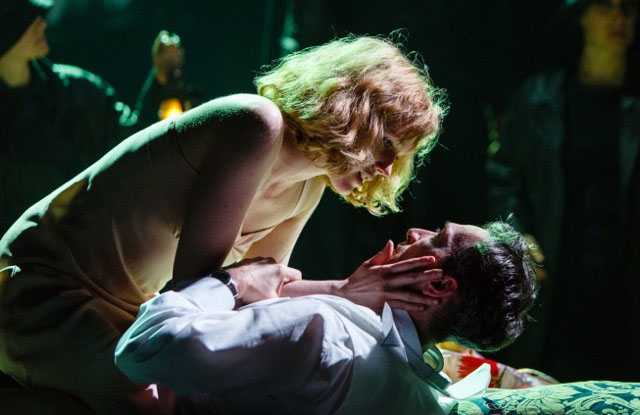It continues to do a brisk trade and has reportedly never been out of print since it was first published in 1938. But, as du Maurier’s son Kits Browning points out, Rebecca’s popularity doesn’t mean it should be left on a pedestal.
“After so many years, I believe that a new approach is called for and you have to turn Rebecca on its head slightly. I think that it’s due for another go and having researched some of Kneehigh’s work on YouTube, it looks as if they are the people to give Rebecca a very contemporary production.”
How does Kits explain the book’s continued appeal?
“I think that fundamentally it’s a damned good story,” he replies. “My mother would get very cross when people called Rebecca a romance. I think that she didn’t want her work to be compared with the kind of books somebody like Barbara Cartland was writing because hers was a very different genre. Even today, people find it hard to square the author of Rebecca with the person who wrote The Birds or Don’t Look Now.”

However you describe it, Rebecca brought worldwide fame to Daphne du Maurier who apparently had mixed feelings about the attention.
“I remember that the American Navy – or the part of it that had been stationed nearby at Fowey – turned up one day. My mother hid on the roof and sent my sister Tessa down to tell them that she was away. She also would get annoyed when she’d give an interview about her new book to a reporter and all they wanted to talk about was Rebecca. However, Daphne took great pleasure in the success of the book. She was very proud of it and amazed by its impact.”
Having a famous parent can also be a mixed blessing for the children, as Kits recalls. “I think the first time I realised that my mother was a celebrity was when I went away to school in 1948/1949 and I saw piles of her new book, My Cousin Rachel, stacked high at the station booksellers. The other boys soon realised whose son I was and would plague me with questions like “How’s Cousin Rachel?” It was with My Cousin Rachel rather than Rebecca that I understood the extent of Mum’s fame.”
Manderley is an amalgam of two houses. To put it simply, the imposing, gothic look of Manderley is based on Milton Hall, a property near Cambridge which Daphne du Maurier visited often and where she met the model for Mrs. Danvers. The location of Manderley, however, was inspired by Menabilly in Cornwall, where du Maurier lived between 1943-1969.

“It was like Never-Never Land in Peter Pan,” he recalls. “We didn’t get a television set until 1956 and Daphne was very good at encouraging us to play games in the grounds which was really wonderful. I remember several gorgeous summer days in the late 1940s. I don’t think we were ever very interested in our mother’s occupation. We simply accepted the fact that writing books was something she did.”
When the children reached an age to fill the house with lively noise, Daphne retreated with her manual typewriter to a hut about three quarters of a mile from Menabilly in order to work.
“She’d finish at half-past seven and I can still see the glow of her torch as she made her way back to the house through the darkness.” Somewhat shame-facedly, Kits admits to not having read Rebecca until he was a young man, preferring more traditional schoolboy fare.
“I was more of a Biggles fan, as was my father,” he says. “And I didn’t realise how famous Rebecca was until I saw the Hitchcock film version sometime in the 1950s.”
In the 1960s, Kits joined forces with his mother in setting up a production company to encourage the exploitation of her books. She had herself adapted Rebecca for the stage shortly after the book’s publication and there have been a number of productions both in the theatre and on television down the years. Waiting in the wings is a musical theatre version which has played very successfully in Germany and Austria but which has yet to appear in London or New York. In reflecting on Rebecca’s perennial appeal, Kits remembers a prediction made by the writer Sir Arthur Quiller-Couch to his mother.
“The critics will never forgive you for writing Rebecca,” he observed.
Rebecca, Cambridge Arts Theatre, 23-28 March, 7.45pm. Tickets from £15
Watch the trailer here:

